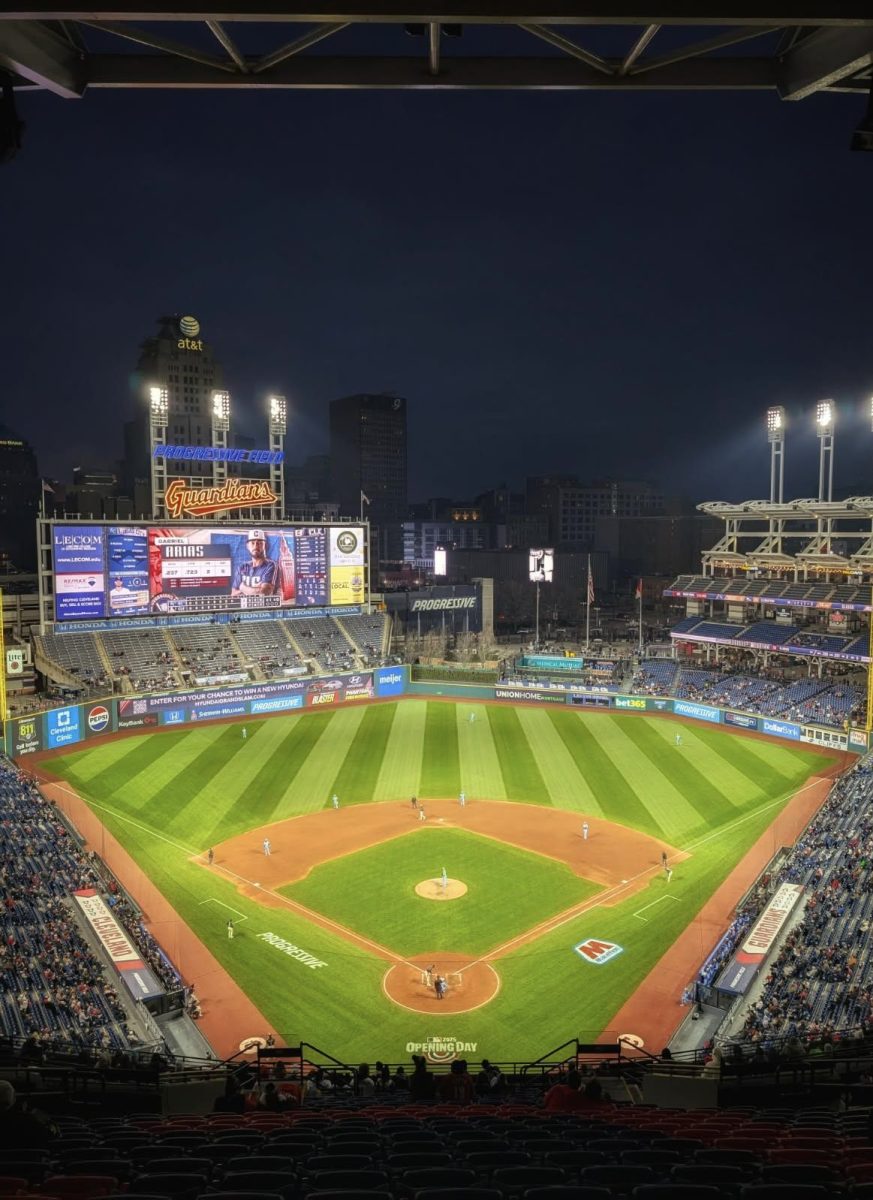Strolling Down Abbey Road
Read this appreciation from Cardinal Nation music critic Brian Mignogna
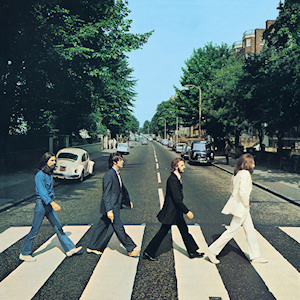
Originally taken in Abbey Road, London, outside EMI Studios by the late Scottish photographer Iain Macmillan.
February 3, 2023
Summary: The Beatles, the one band you are probably sick of hearing about, formed in Liverpool, England, in 1957, and would rise to fame in England and America during the early 1960s. The group consisted of four main members: John Lennon, McCartney, George Harrison, and Ringo Starr. After years of playing and expanding into different rock sub-genres, the band decided to break up due to personal tensions and stress within the group. Their penultimate album, “Abbey Road,” would be released on September 26, 1969, and would be a reflection of their musical journey up to that point with a more back-to-basics approach. Despite difficulties behind the scenes, the group managed to create a very well-produced, cohesive, and accessible rock album, moving away from the psychedelic experiments found earlier in their career.
George Martin, the main producer for the album, keeps the guitars clear and polished and keeps Starr’s drums clean and punchy. Filled with catchy and iconic tunes such as “Come Together,” “Something,” “Here Comes The Sun,” and “Golden Slumbers,” the album maintains a more down-to-earth approach while keeping every song fresh and exciting. The songwriting from both Lennon and McCartney shines through on every track the pair write, particularly with the more quirky lyrics found in songs such as “Come Together” and in every song from “Sun King” to “She Came In Through The Bathroom Window,” the first part of the medley which makes up much of the second half of the record. Harrison also shows himself to be an improved and capable songwriter on “Something” and “Here Comes The Sun,” the two songs he contributed to the album.
Each member of the band also brings exciting, smooth, and entertaining appearances to the table. Lennon and McCartney show more aggressive and hard-hitting performances on “I Want You (She’s So Heavy)” and “Oh! Darling” respectively, while also bringing smooth melodies to songs such as “Because” and “You Never Give Me Your Money”. Harrison and Starr bring quality performances to their songs as well. Overall, I personally loved this record from the day I first listened to it and I still enjoy listening to every single song on the album.
The Beatles are my favorite band and general music artist, and though not my personal favorite from the band, I would still consider “Abbey Road” a perfect rock album. My favorite songs on the project are “Come Together,” for its nonsensical lyrics and clean blues-inspired riffs, “Something,” for its passionate performance, writing, and guitar solo from Harrison, and “You Never Give Me Your Money” for its touching message of escaping from hard times and for its unpredictable and entertaining nature as it moves through multiple phases.
Overall, I consider Abbey Road to be a perfect rock album, and I highly recommend it for someone who wants to start listening to The Beatles or to rock music in general. Now, if you want to learn more, continue onward into the void.
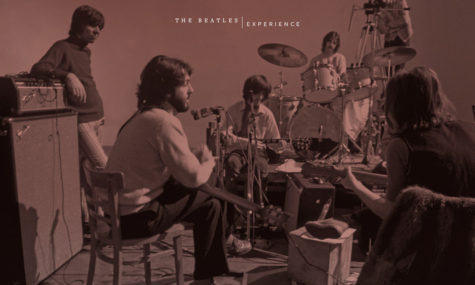
Introduction: Legendary and influential rock band The Beatles were formed in Liverpool, England, in 1957. The band eventually consisted of four main members: John Lennon, Paul McCartney, George Harrison, and Ringo Starr. After growing in popularity and playing in spots throughout the country, they would become one of, if not the most popular bands in the country after Beatlemania, the wave of mass excitement and hysteria surrounding the band, began to manifest itself in England. It would eventually spread to America after The Beatles performed on “The Ed Sullivan Show.” Throughout their career, they would expand on their originally poppy and catchy hit songs which made them stars to encompass a larger variety of genres within the rock landscape, such as psychedelic rock, hard rock, folk rock, and so on.
As tensions between the band members began to escalate as their career continued, the band would decide to break up and would formally disband in early 1970. However, they would release one last record, which they titled “Abbey Road,” releasing it on September 26, 1969. Though their penultimate album, “Abbey Road” would be the last project they recorded together. It would be a reflection of their musical journey, demonstrating the skills of each member and returning to a more back-to-basics routine, similar to their more down-to-earth and accessible records like “Rubber Soul.”
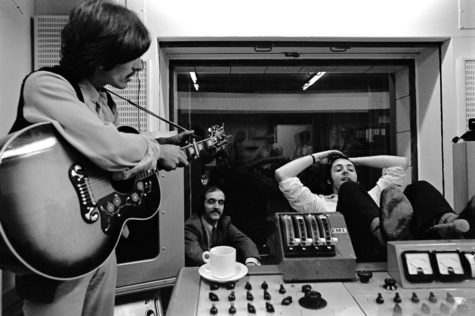
Production: Remarkably, for as much tension as was present in the band itself, with the group about to break up and with the strain and stress that accompanied the launch of the band’s record label, Apple, the album sounds incredibly cohesive and well produced, especially for an album made during the 1960s. This may be due to their music producer, George Martin, urging the group to allow him to produce the record the way their earlier records were produced and the discipline to which he held them.
The group members reported positive recollections of the sessions, though tensions did remain with Lennon and McCartney once again getting into arguments and with the presence of Yoko Ono, John’s wife, doing little to calm the situation. When listening to the record, however, unless given any background, one would never notice any tensions going on behind the scenes. The production, while clean, retains the rock sound The Beatles had grown into. The clean drums and crystal clear guitars exemplify Martin’s skill as a producer, and the harmonies present on most tracks are given just the right amount of reverb to sound neither overwhelming nor underwhelming, most notably on the psychedelic track “Because.” The atmosphere of the record remains consistent, possibly the most consistent of any of their records, and the back-to-basics routine the band was aiming for certainly appears to have been achieved.
The record does not delve into any of the experimentation present on previous records, sticking to a primarily rock, but occasionally pop or blues inspired, sound. Although I enjoy some of their more odd experiments, I think this approach works to the album’s benefit in this case. The album is full of smooth, timeless tunes such as “Come Together,” “Here Comes The Sun,” “Something,” and “Octopus’s Garden,” but it also has its share of hard-hitting moments. Examples would be McCartney’s aggressive vocal delivery and the sharp guitars on the bridge of “Oh! Darling” and the overwhelming white noise that creeps its way into the last quarter of “I Want You (She’s So Heavy)”.
The second half of this record, after the first couple songs, begins to delve into a medley of short, catchy songs from “Sun King” to “The End.” After “You Never Give Me Your Money,” not one song goes over the three-minute mark, and each song leads into the next miraculously. For example, the transition from “Polythene Pam” into “She Came In Through The Bathroom Window” always impresses me. Overall, despite tensions and frustrations in the group, the band manages to craft a more accessible, cohesive, catchy, and well produced album.
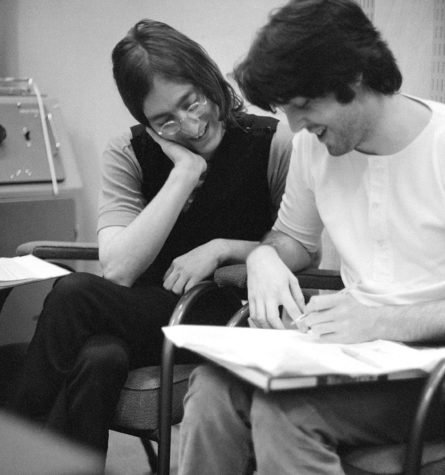
Songwriting: Throughout The Beatles’ career, Lennon and McCartney have written most of the songs for the group. As such, due to such experience, their songwriting remains as impactful, engaging, and occasionally strange as ever. “Come Together,” for example, has some of the most nonsensical lyrics of any of their songs, but the smooth drums and simple guitar notes help to bolster the songwriting and vice versa. This is the case for most songs in the early half of the medley as well. No one is going to argue that “Mean Mr. Mustard” or “Sun King” are any of the Beatles’ best or even best written songs, but when put next to each other, they are clearly meant to be simple fun, and the catchy melodies which The Beatles have harbored since their pop days once again back up the odd writing.
However, there are many more “normal” and well-written songs here, too. “Oh! Darling” and “You Never Give Me Your Money” are two examples of superb writing from Lennon and McCartney, and the surprisingly tearjerking finale from “Golden Slumber” to “The End” adds a bit of emotional depth to the album. However, two of the best written songs actually come from George Harrison, titled “Something” and “Here Comes The Sun.” On previous records, his songs have paled in comparison to the songs from Lennon and McCartney, but that is not the case here. “Something” is one of the best love songs The Beatles have released and “Here Comes The Sun,” though not one of my personal favorites, is nothing short of iconic, and I can acknowledge that it has one of the best melodies of The Beatles’ career and some of the best writing on the album. Ringo Starr also has time to shine on the record, as though he is primarily the drummer for the group, he wrote and performed the song “Octopus’s Garden,” a fun, upbeat track which fits the atmosphere of the album well. In summary, the group’s songwriting continues to be strong and entertaining throughout the album.
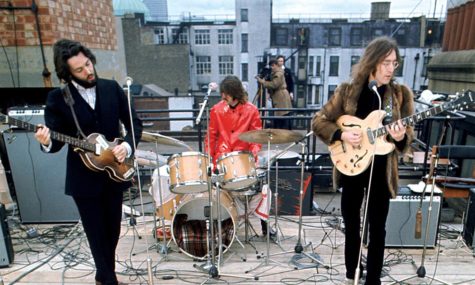
Artist Performance: Along with their enhanced production and effective songwriting, the band members bring along some of their most engaging performances. Lennon’s smooth and slow vocal melodies on “Come Together” contrast with his more aggressive delivery on “I Want You (She’s So Heavy),” both of which are well performed and fit their respective songs perfectly. Paul also brings some of his most thrilling and captivating vocal performances as well. His stronger rock-sounding delivery on “The End” and especially on “Oh! Darling” (one of his best performances on any Beatles song) expands his range, while he still delivers on the smoother cuts such as “Maxwell’s Sliver Hammer” and “You Never Give Me Your Money.” Harrison and Starr bring gentle and melodic performances to their respective songs and as background vocalists on other tracks, and though their performances don’t particularly stand out, they fit their songs and certainly show skill. Lennon, McCartney, and Harrison blend well to create breathtaking harmonies on “Because” and “Sun King,” for example. In terms of other instruments, the guitar playing in the group, along with Starr’s drums, keeps a sharp and energetic sound. Harrison’s slick guitar solo on “Something” is a particularly stunning example of the more subdued playing on the album, as his solo fits the mood of the song and elevates it as a whole. The relaxed bass on “I Want You (She’s So Heavy)” (where the band also uses a white noise generator) and the piano playing on “You Never Give Me Your Money” are examples of more musical highlights. American singer-songwriter and performer Billy Preston also joins the band, playing the hammond organ on “Something” and “I Want You (She’s So Heavy)”. His playing on the latter stands out the most, and his solos add much to the intense nature of this track. Altogether, The Beatles, along with Preston, bring engaging, exciting, smooth, and impressive performances.
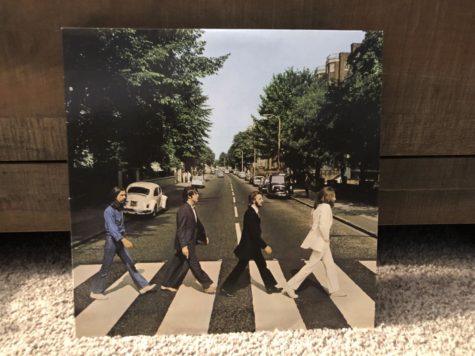
Personal Enjoyment: I will begin by saying that The Beatles are my favorite band and musical artist in general. Every album I have heard from them (which excludes “Please Please Me,” “Beatles For Sale,” and “Yellow Submarine”) has been one that I have enjoyed to some degree. They have three albums which I consider classics and 10 out of 10s, and for all the praise I have heaped on it, “Abbey Road” is only my 3rd favorite Beatles record.
However, when compared with other artists, I still find it to be one of my favorite rock records of all time. From when I first listened to it until now, I enjoy every single song on the album, even including their more strange and random material from the medley in the first half. If I absolutely had to pick a least favorite, I might say “Polythene Pam,” since it’s one of the more basic songs on the album in terms of instrumentation and I sometimes am unsure of how well it has aged. However, I personally feel that it works in the album’s context as part of the sillier half of the medley.
Altogether, I still do find “Abbey Road” to be a perfect rock album. There isn’t much more I can add right here, since I feel that I have expressed my admiration for the album through much of this review already, but I will explain my three favorites. The opening track “Come Together,” which I had considered to be one of The Beatles’ more underwhelming hits, grew on me over time, and the relaxed, more subdued nature of the track, along with the strange lyrics and blues inspiration, make it a unique song in their catalog. “You Never Give Me Your Money,” my second favorite song on the album, is one of the most entertaining and frankly beautiful songs on the album, as it moves through multiple phases, going from the solemn and melodic intro to a jaunty yet despairing middle section to a more uplifting and cheerful ending, complete with catchy guitar solos and melodies all typical of a Beatles song. The message I took from it about escaping from hard times and chasing your dreams was one I found particularly touching as well. Finally, “Something” is my favorite song on the record. Most likely my favorite song Harrison ever wrote for the band, the relaxed harmonies, matured songwriting, slick guitar solo, and slow moving tempo fit together to create, in my opinion, one of The Beatles’ best songs they ever released. Also, I do want to mention “Here Comes The Sun,” which though not one of my personal favorite songs on the album, is one of The Beatles’ most popular and iconic songs nonetheless. If one wanted to start listening to The Beatles and needed a song to start with, I would certainly recommend this song.
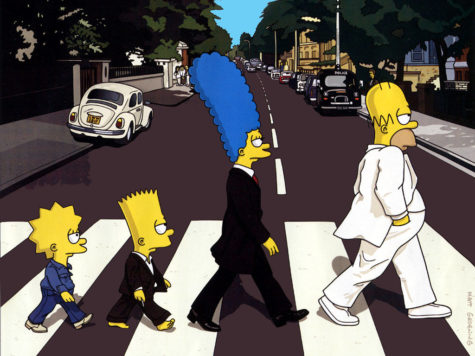
Influence: Like many, if not most albums from The Beatles, Abbey Road would have a great influence on future rock bands and on future rock albums. The album cover of The Beatles walking across “Abbey Road,” in particular, would become a prevalent part of modern pop culture. Most people who are at least mildly familiar with music are at least somewhat familiar with this cover. Certain aspects of the album, such as the medley and the hidden track (after “The End,” a small snippet of a song titled “Her Majesty” plays after seconds of silence) would be used or employed by different artists as time went on. Although the record may not have been as directly influential as some of The Beatles’ previous efforts, given its popularity, the status it has in modern pop culture and rock music cannot be understated.
Rating: 10/10
Favorite Songs: Come Together, Something, You Never Give Me Your Money (I also recommend Here Comes The Sun)
Least Favorite Song: N/A


